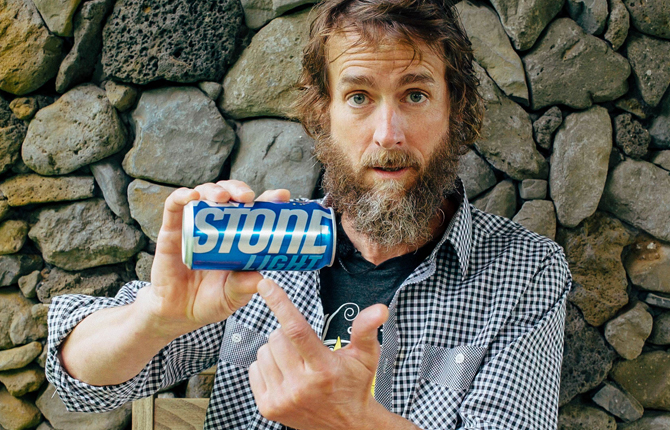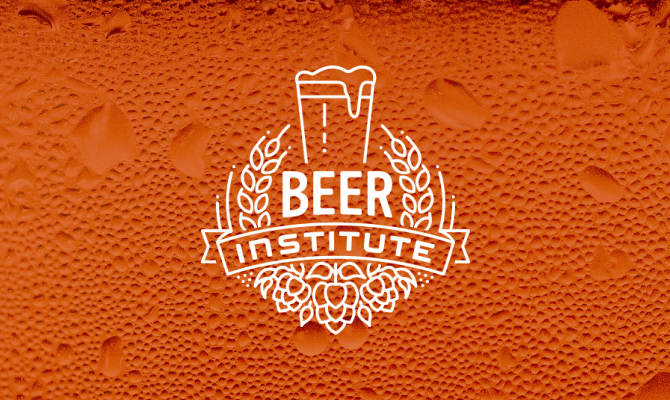
Stone Seeks Attorneys’ Fees From Molson Coors
Stone Brewing Company has filed a motion to recoup attorneys’ fees after winning a $56 million judgment against Molson Coors for trademark infringement, according to court documents filed earlier this week.
“Stone’s fees and costs are also reasonable in light of the manner in which defendant chose to litigate this case,” Stone’s attorneys from BraunHagey & Borden wrote in the heavily redacted filing.
Rates for Stone’s attorneys range from $920 per hour for the firm’s “most senior and experienced partners, to $370 per hour for the firm’s more junior lawyers.” The firm argued that “the time spent litigating the case is reasonable” given it was “complex, complicated, hard-fought” and “lengthy” at four years in the making.
In contrast, BraunHagey & Borden wrote that Molson Coors’ lead trial counsel, Quinn Emanuel, “regularly seeks approval of rates over $1,000, and as high as $1,350, for partners, and as much as $1,065 for associates.”
Stone’s attorneys allege Molson Coors caused Stone to “incur additional costs and fees by:”
- Refusing to produce basic info, including sales data, the identity of witnesses, historical Keystone advertising;
- Producing an unprepared “witness who could not answer basic questions,” which forced Stone to file a motion to compel a more prepared witness;
- Refusing to provide materials cited by Molson Coors’ archivist but not previously produced, despite a court order requiring it to provide the materials;
- Withholding video evidence of company executives’ presentations celebrating the Keystone rebrand at wholesaler meetings from 2017 to 2019.
Molson Coors has asked the court to extend the time both parties have to file reply briefs to April 25.
A Molson Coors spokesperson offered the following statement:
“By the end of plaintiff’s case, it was clear that Stone Brewing had not carried its burden on several issues and that there was no consumer confusion between Keystone Light and any of Stone Brewing’s products.
“We also learned that Stone Brewing owes $464 million to its private equity investors in 2023, and the jury unanimously rejected Stone Brewing’s contention that MillerCoors infringed their trademark willfully.
“As such, we have requested a directed verdict and is why we’re refuting Stone Brewing’s damages claims. For similar reasons, we do not believe that Stone Brewing is entitled to any attorneys’ fees and plan to oppose Stone Brewing’s motion.”

Brewers Association to Honor Annette May and Ramon Tamayo as Mentors of the Year
The Brewers Association (BA) has named Annette May and Ramon Tamayo its inaugural Mentors of the Year.
May and Tamayo will be honored during the BA’s Craft Brewers Conference May 2-5 in Minneapolis. Both have served as mentors in the BA’s mentorship program, which “aims to increase the diversity of the workforce, leadership, and ownership of small and independent breweries by providing structured mentoring and advocacy to those experiencing barriers to access or advancement in the industry,” according to a press release.
“Through the larger mentorship program and our wonderful volunteer mentors, we’re moving the needle in the craft beer community by providing people with the tools and resources to be successful – especially those up against larger barriers,” BA equity and inclusion partner Dr. J Nikol Jackson-Beckham said in the release. “I’m proud to see Annette and Ramon making lasting, positive, ripple effects in the industry; they are setting a strong foundation to nurture the next generation of entrepreneurs and industry professionals.”
The mentorship program has paired 86 mentors with 89 mentees since its inception a little more than a year ago, and the BA recently announced its third cohort of 34 participants.
In addition to being the first female Certified Cicerone, May is a founding faculty member of Schoolcraft College Brewing and Distillation Technology program. She also sits on the BA’s mentorship and development subcommittee.
“Mentoring is a great way to give back to the community and make a positive impact in someone’s life,” May said in the release. “From serving and tasting beer to Craft Beer 101, I’m happy to have the chance to help mentor people who are looking to grow and thrive in the craft beer industry.”
Tamayo is the brewing manager at San Francisco-based Magnolia Brewing. He continues to mentor program participants in technical brewing and brewery safety.
“As a brewing community, we need to band together to help facilitate the continued growth of our members,” Tamayo said in the release. “Through this program, I’ve met so many great people, both fellow mentors and mentees and heard so many wonderful stories. It was an inspiring experience that I am truly grateful to have been a part.”

Beer Institute to Conduct ‘Comprehensive Search’ For Next President & CEO
The Beer Institute (BI) will conduct an extensive search process for a successor to president and CEO Jim McGreevy, who will exit the trade group in May, chairman Gavin Hattersley shared in a member update on Thursday.
“It’s said that the one constant in life is change and that is all the more true for our industry,” Hattersley, the president and CEO of Molson Coors Beverage Company, wrote. “But change is also an opportunity for new energy and fresh ideas as the beer industry and the BI turns to the next chapter in our long history. As in the past, there will be a comprehensive search and the input, concerns and advice of all BI members is welcomed as the organization goes through this process.”
Hattersley thanked McGreevy, who led the BI for eight years, “for his leadership” and “notable accomplishments, including permanence of the Craft Beverage Modernization Act and working with the federal government to make sure our industry was deemed essential in the midst of a global pandemic, something that has saved countless jobs over the last two years.”
In the interim, the BI’s team will pick up any slack, Hattersley wrote.
“In the meantime, the work of the industry goes on and to Jim’s credit, the BI has a fantastic team working on behalf of the entire membership,” he wrote. “That work can and must continue as the challenges we all face will not hit pause. I have every confidence in the staff of the BI and I appreciate their ongoing commitment to the organization on behalf of all BI members and the beer industry.”

Beer Trade Group Leaders Publish Argument Against Spirits Equalization
The leaders of the National Beer Wholesalers Association (NBWA) and Beer Institute (BI) published an essay on Medium calling for the continuation of regulatory and taxation differences between beer and spirits.
“With the advent of canned cocktails, the liquor industry is trying to make you believe there is no difference between beer, wine and liquor,” NBWA president and CEO Craig Purser and the BI’s Jim McGreevy wrote. “But a cocktail served at a bar and a cocktail served in a can are the same product – the packaging should not change the tax rate.”
Purser and McGreevy wrote the piece to coincide with National Beer Day (April 7), which is celebrated to mark the anniversary of President Franklin D. Roosevelt receiving a beer truck at the White House weeks after signing legislation to end Prohibition.

Molson Coors and Hop Valley Bring Henry Weinhard’s Private Reserve Back to Oregon
Molson Coors is bringing back “Oregon’s first craft beer,” producing Henry Weinhard’s Private Reserve in Oregon again after 20 years, the beer giant announced in a blog post Tuesday.
The 4.7% ABV lager will be available as a Hop Valley Brewing offering beginning this month in Oregon, Washington, and Idaho. Eugene, Oregon-based Hop Valley is a part of Tenth & Blake, Molson Coors’ craft beer division.
“Henry Weinhard’s blazed the trail for craft beer in the Northwest,” Brandon Ross, Hop Valley national chain sales manager, said in the blog post. “We knew we had to take this opportunity and run with it.
“It’s not going to be a big money maker for us,” he continued. “We want to keep it true to the generation that grew up drinking this brand.”
The relaunch will use the original recipe, along with Cascade hops from Oregon, according to Molson Coors. However, the beer’s packaging has been rebranded to have “a classic, retro look that trumpets Henry Weinhard’s 1856 founding and stands out on shelves.”
Private Reserve was first brewed in 1976. Miller Brewing acquired Henry Weinhard’s in 1999, and moved production from Portland, Oregon, to Tumwater, Washington.
The relaunch will first be available in cans, but “could be available on draft one day.” Other Henry Weinhard’s brands “could make a comeback, too,” Ross said.

BI: Imports Jump +18% in February
Imported beer grew by 18.2% in February 2022, “driven almost entirely by Mexican imports,” which were up more than 600,000 barrels (+38.8%) for the month, Beer Institute senior VP of research Danelle Kosmal shared, citing import/export data from the U.S. Department of Commerce and Census Bureau. Kosmal added that the net gain for total imports was 450,000 barrels compared to February 2021.
Kosmal cautioned to keep in mind that year-ago comps “are very favorable,” as Mexican imports were down -9.2% (a decrease of nearly 175,000 barrels) in February 2021 compared to February 2020. February 2021 marked one of the lowest volume months over the last two years, only surpassed by May 2020.
“Mexican import barrelage is in line with volume trends for recent months,” Kosmal added. “For example, February 2022 shipments for MX imports are down -0.8% compared to January 2022 and up +0.5% compared to December 2021.”
Kosmal continued that there is typically a volume drop in February compared to January.
“In 2020, Mexican imported volume dropped 9% in February compared to the month prior of January 2020,” she wrote. “The slight dip in volume for this latest month compared to January is a much better trend than we see in a typical drop from January to February.”
